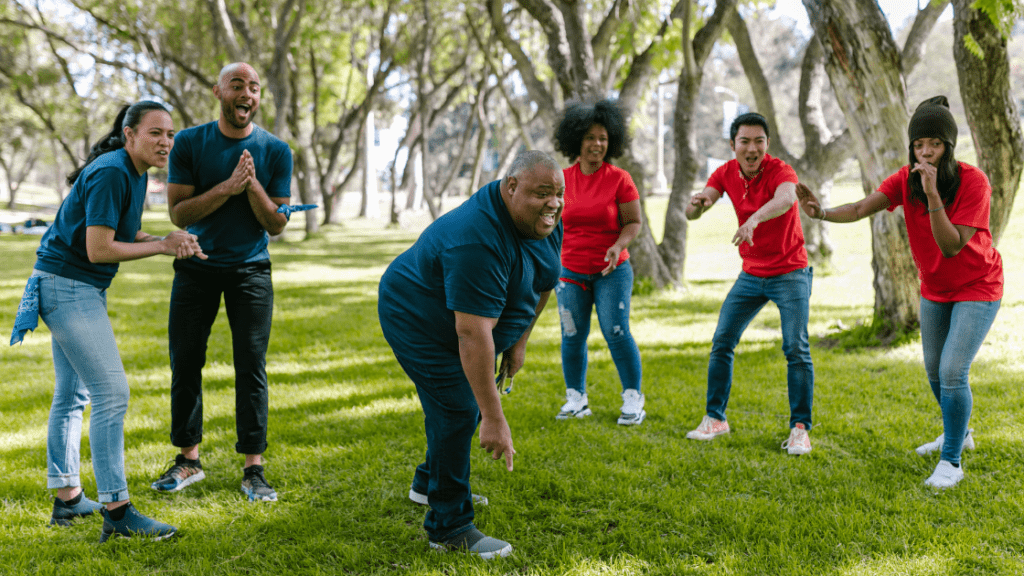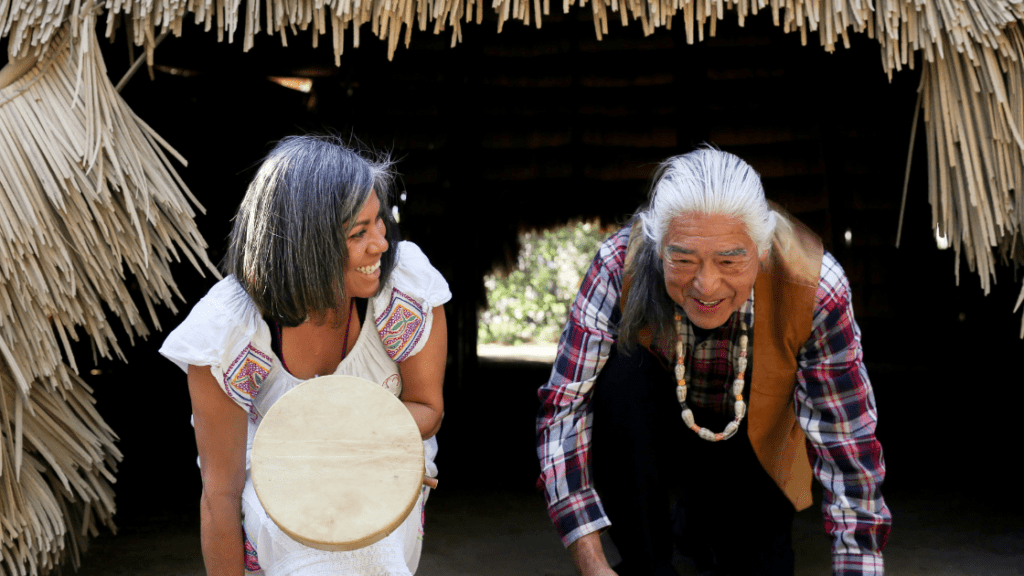Establishing daily challenges to improve your wellness doesn’t have to be intimidating or complicated, especially if you draw inspiration from your ancestors! No doubt, most of us often feel overwhelmed by the demands and distractions of modern life. Fortunately, our ancestors modeled some simple practices that can inject more balance and happiness into your daily routine. While those from past eras of human history did not have the luxuries and conveniences we do today, they did have several habits proven to make the most of daily life and enhance physical, mental, and emotional health.
In this article we’ll share five daily challenges based on ancestral habits that can be easily incorporated into your life for improved well-being.
Wake Up with the Sun

The first of the ancestral daily challenges is to wake up with the sun. Our ancestors did not have alarm clocks or smartphones to tell them when to get up, but they relied on the natural rhythm of the sun and their own biological clock.
Waking up with the sun has many benefits for our health and mood. It helps us regulate our circadian rhythm, which is the internal system that controls our sleep-wake cycle and other bodily functions. It also boosts our energy, productivity, and creativity, as we start the day with a fresh and positive mindset.
Here are 5 Lesser-Known Benefits of Rising with the Sun. Can you guess what they are?
To wake up with the sun, you can try to go to bed earlier and avoid artificial light sources before bedtime, such as TV, computer, or phone screens. You can also use curtains or blinds that let some natural light in your bedroom, or use a sunrise alarm clock that mimics the gradual rise of the sun. You will notice how much better you feel when you wake up naturally and greet the new day.
Eat Seasonally and Locally

Another of the daily challenges you may want to add to your lifestyle is to eat seasonally and locally. Our ancestors ate what was available and fresh in their environment, depending on the time of the year and the location. They did not have access to processed, packaged, or imported foods that we often consume today.
Eating seasonally and locally has many advantages for our health and the planet. It helps us reduce our environmental impact, as we support our local farmers and avoid the transportation and storage costs of imported foods. It also nourishes our body with the right nutrients, as we eat foods that are in sync with the seasons and our needs. For example, eating citrus fruits in winter can boost our immune system and prevent colds, while eating leafy greens in spring can detoxify our body and promote digestion.
Need more convincing? Read The Science and Benefits of Consuming Locally Seasonal Produce to learn more.
To eat seasonally and locally, you can try to shop at your local farmers’ market or join a community-supported agriculture (CSA) program that delivers fresh and organic produce to your door. You can also use online tools or apps that tell you what foods are in season in your area and how to cook them. You will enjoy the variety, flavor, and quality of seasonal and local foods.
Move Your Body Naturally

A third daily challenge inspired by your ancestors is to move your body naturally. Our ancestors engaged in physical activities that were functional and fun, such as walking, gardening, dancing, and playing. They did not need expensive equipment or gyms to stay fit, flexible, and strong.
Moving your body naturally has many benefits for enhancing wellness. It helps you burn calories, build muscle, improve your posture, and prevent diseases. It also releases endorphins, the feel-good hormones that reduce stress, pain, and depression. Body movement enhances creativity, memory, and learning, as you stimulate your brain and senses.
To move your body naturally, you can try to incorporate more movement into your daily life, such as taking the stairs instead of the elevator, walking or biking to work or school, or doing some household chores. You can also find activities that you enjoy and that suit your level and goals, such as yoga, pilates, dancing, or hiking. You will have more fun and motivation when you move your body naturally.
Want a few more ideas for natural movement you can consciously add to your daily life? 7 Natural Movements That Are Just What The Doctor Ordered offers instructions and videos for some very old but crucial movements that can truly enhance health throughout your life.
Connect with Nature

Connecting with nature is another daily challenge that can significantly improve well-being. Our ancestors spent lots of time outdoors, enjoying the beauty and bounty of nature while working and playing. Without the distractions and isolation that we often experience today because of busy schedules and digital devices, our ancestors were able to tune into the natural world in ways we often ignore.
Connecting with nature has many benefits for our well-being and creativity. It helps us reduce stress, anxiety, and blood pressure, as we relax and breathe fresh air. Nature boosts our mood, self-esteem, and empathy, as we appreciate and interact with other living things. It also sparks our imagination, inspiration, and problem-solving skills, as we observe and learn from nature’s patterns and processes.
Learn more about the science of how nature soothes and rejuvenates mind and body in this Nurtured by nature, an article from the American Psychological Society.
To connect with nature, you can try to spend more time outside, whether it is in your backyard, a park, a forest, or a beach. You can also bring some nature into your indoor space, such as plants, flowers, or natural objects. Use your senses to their fullest, such as listening to the sounds of birds or water, smelling the fragrance of flowers or herbs, or feeling the texture of leaves or stones. You will feel more connected and alive when you make time in nature a priority.
Practice Gratitude and Mindfulness

Challenge yourself to a daily habit of practicing gratitude and mindfulness, a habit our ancestors often used to appreciate what they had and live in the present moment. The trappings of modern life often foster comparisons, dissatisfaction, unreasonable expectations, and regret that can negatively impact mental and physical health. And while our ancestors may have had many hardships and difficulties we don’t face today, embracing the blessings they did have helped develop resilience and peace of mind.
Practicing gratitude and mindfulness can significantly improve health and mood. It helps us cultivate a positive attitude, as we focus on the good things in our life and express our thanks. It aids in managing challenges and allows us to accept and learn from our experiences and emotions. As we pay attention and savor the present moment, we are able to breath and bring ourselves to a place of calm.
To practice gratitude and mindfulness, you can try to keep a gratitude journal, where you write down three things that you are grateful for every day. You can also practice meditation, where you sit quietly and observe your breath, thoughts, and sensations. Practice mindfulness in your daily activities, such as eating, working, or talking, by focusing on what you are doing and how you are feeling. You will experience more joy and peace when you practice gratitude and mindfulness.
Daily Challenges for Optimal Wellness
By adopting some of the habits that our ancestors practiced as part of their everyday life, you can improve your physical, mental, and emotional health, and live a more balanced and fulfilling life. You do not need to incorporate these daily challenges all at once, but you can start with one that resonates with you and make it a part of your routine. You will notice how much these habits can transform your well-being and happiness. Are you ready to live like your ancestors for better wellness? Start today by choosing one habit that resonates with you and make it a part of your routine. Let us know how it goes in the comments below!
For more ancestor-inspired ideas to enhance your life, check out Best Old-Fashioned Life Skills for Adults to Learn Now.


